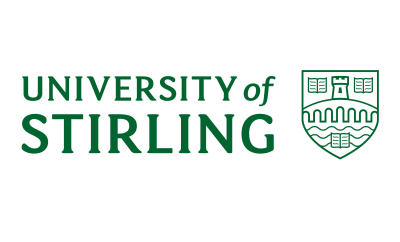
BSc (Hons) in Environmental Science
University of Stirling

Key Information
Campus location
Stirling, United Kingdom
Languages
English
Study format
On-Campus
Duration
48 months
Pace
Full time, Part time
Tuition fees
Request info
Application deadline
Request info
Earliest start date
Aug 2024
* For up to date fee information, please see website
Introduction
Overview
Today’s environmental scientists are challenged to find solutions to some of the world’s most pressing problems from climate change, pollution, and the loss of biodiversity to the sustainable provision of energy, food, and clean water.
We were one of the first UK universities to introduce an Environmental Science degree and our course is accredited by the Institution of Environmental Sciences. We conduct world-leading research and we are a hub for conservation and environmental organisations.
Top reasons to study with us
#1 Top 5 in Scotland for Geography and Environmental Science (Complete University Guide 2023)
#2 All research (100%) from Biological and Environmental Sciences was rated as having either outstanding or very considerable impact (REF 2021)
#3 Top 3 in Scotland for Environmental Science (National Student Survey 2023)
Professional accreditation
This course is accredited by the Committee of Heads of Environmental Sciences (CHES), the education committee of the Institution of Environmental Sciences (IES). CHES is the collective voice of the environmental sciences and related disciplines in higher and further education. University of Stirling Environmental Science students are entitled to join the IES with a free student membership, a first step towards chartered status.
Curriculum
The environmental systems on which our society depends are complex and fragile. To understand these systems, environmental scientists need to take an interdisciplinary approach that combines knowledge of the geological, physical, chemical and biological processes that shape our natural environment.
This course will equip you with the analytical, field and laboratory skills to understand the complex interactions between people and the environment. Research-led teaching ensures you are up-to-date with the latest knowledge.
Semesters 1-4 will explore the science behind the global geological, physical, chemical and biological processes that shape our natural environment. We'll also provide training in laboratory and field skills through a series of core and optional modules.
Semesters 5-8 will provide specialist training in core modules, such as: Environmental Policy and Management; Geographical Information Systems; and Methods and Applications in Environmental Science.
Many students work closely with academics throughout their time and benefit from actively participating in research programmes. Our alumni contribute to our teaching, as invited speakers and discussion partners.
Teaching
The University of Stirling achieved five stars for teaching in the QS Stars University Ratings 2021.
Our research-led teaching is at the core of your learning as our staff are world-leaders in Environmental Science research. Our teaching methods include lectures, field and laboratory practical exercises, seminars, and individual and group projects.
Fieldwork
Fieldwork is integrated into the course. Stirling provides an ideal location for studying the environment – the campus has a loch and woodlands set against the backdrop of the Ochil Hills. There is also easy access to national parks and landscapes as diverse as the Scottish Highlands, the Forth Estuary and land degraded through past industrial activities.
You will have the choice of two residential field trips (in Yr 3 & Yr 4). Currently one of these is based in the NW Highlands of Scotland; and we are we currently seeking a new location for the other, likely to be in continental Europe. These 7-day field courses introduce students to the process of designing, conducting and analysing your own small research project.
Gallery
Program Outcome
You'll gain a scientific grounding and relevant, employable and in-demand skills. Specialist skills modules and regular careers sessions are embedded into core teaching. Field training is a fundamental element that includes field courses in the UK and international destinations.